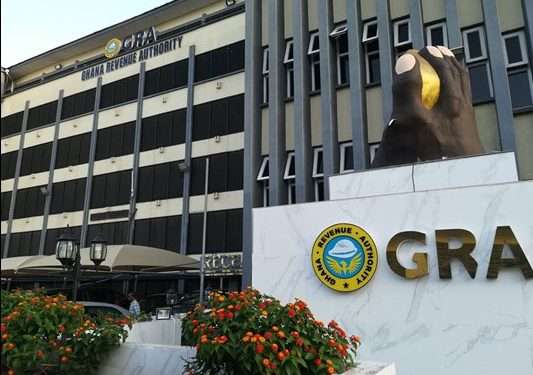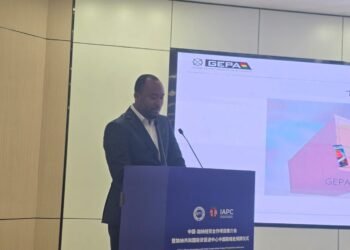The Ghana Revenue Authority (GRA) has fired a major warning shot to operators in the underground economy with the announcement of a sweeping nationwide monitoring and enforcement blitz beginning November 2025.
According to the Authority, the initiative is designed to clamp down on non-compliant businesses, with a particular focus on night market operations, long considered a blindspot in Ghana’s tax compliance.
In a press statement, the GRA emphasized that the exercise aims to ensure greater transparency, protect public interest, and strengthen adherence to tax laws across the country.
At the heart of this national exercise is a renewed push to enforce compliance with Value Added Tax (VAT) regulations. The GRA revealed that it will conduct a series of VAT compliance checks, stating that:
“VAT Enforcement: GRA will undertake enforcement exercises such as checking the issuance of VAT invoices and carry out test purchases at the premises of VAT-registered businesses.”
GRA
These test purchases are crucial, as they allow officials to assess whether businesses are abiding by Section 41 of the VAT Act, 2013 (Act 870), which mandates the issuance of VAT invoices for all taxable transactions.
“This is to ensure that VAT-registered businesses issue VAT invoices as required under section 41 of the VAT Act, 2013 (Act 870). Businesses are urged to cooperate fully, while customers are advised to always demand their VAT invoices.”
GRA
Furthermore, the GRA stressed the legal consequences of non-compliance, cautioning that, “Failure to issue a VAT invoice as required is an offence punishable under the provisions of the Tax Laws.”
This enforcement drive is expected to promote fairness within the business environment by ensuring that VAT-registered entities follow the law while encouraging consumers to play their part in improving tax compliance.
Night Markets and the Underground Economy in Focus
Beyond VAT compliance, the GRA is turning its attention to the country’s vibrant but largely unregulated night market economy. Many night-time businesses operate outside the formal tax net, making them contributors to significant revenue leakage.
To address this challenge, the GRA has announced the deployment of a special night operations task force specifically mandated to track and monitor these businesses. In the statement, the Authority noted:
“Monitoring & Enforcement of Night Market Operations: A special task force will be carrying out monitoring and enforcement exercises, targeting businesses operating in the night market and the underground economy to ensure tax compliance by these businesses.”
GRA
This heightened scrutiny is expected to disrupt clandestine trade practices that thrive under limited oversight. Operators in food joints, retail trading, service delivery, and other cash-based night-time businesses will now come under direct monitoring to ensure compliance with Ghana’s tax regulations.
Promoting Transparency and Public Interest
The GRA underscored that the upcoming enforcement campaign is grounded in a broader institutional commitment to improving transparency and accountability within the tax system. As stated in the release:
“These monitoring and enforcement exercises are part of GRA’s commitment to promoting transparency and safeguarding the public interest and ensuring compliance with the tax laws.”
This stance aligns with the Authority’s long-term goals of stabilizing revenue inflows, leveling the playing field for compliant businesses, and strengthening national trust in the tax administration process.
For many years, Ghana’s underground economy has posed a significant challenge to tax authorities. By vigorously targeting night operations, the GRA seeks to formalize business activities that have traditionally escaped monitoring and taxation.
One of the notable features of the GRA’s strategy is the active inclusion of the general public in the fight against tax evasion. The Authority has reiterated its reminder about the Informant Award Scheme, highlighting that:
“The Authority also wishes to remind the general public of its Informant Award Scheme, which aims at rewarding persons who provide credible information leading to the recovery of revenue.”
This initiative empowers citizens to become partners in national revenue protection efforts. By offering financial rewards, the scheme incentivizes individuals to report illicit activities, fraudulent practices, and deliberate tax evasion that undermine developmental progress.
While the enforcement exercise is expected to be rigorous, the GRA emphasizes that it is not intended to disrupt legitimate business operations. Rather, its goal is to ensure fairness, enhance accountability, and encourage voluntary compliance.
Businesses that operate legally and issue VAT invoices will not be negatively affected. Those that fall short, however, should brace for sanctions, revenue recovery actions, or prosecution as dictated by law.
READ ALSO:Massive ADB Recapitalisation Announced as Bank Delivers Record-Breaking Profits























